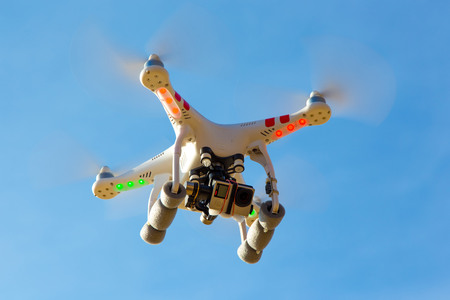The ten host stadiums have been declared no-fly zones at this year’s European football championship, starting in France on 10th June and ending 10th July. This security move comes following the attacks in Paris last November, which included three explosions outside the city’s Stade de France while France played Germany in a football friendly. Head of security for Euro 2016, Ziad Khoury, has noticed how proliferate drone use has become and has decided a blanket ban of the technology is in order to ensure safety, saying that the technology is a ‘dissuasive measure that didn’t exist at previous sports events’.
What are the potential threats?
Drones can be bought and used by anyone, so the likelihood is that a drone appearing near a stadium is likely to be holding only a camera so that an interested spectator can film the match from above. There has already been an arrest in the UK last year for nine breaches of the Air Navigation Order by a man taking video over football grounds, up and down the country. Clearly, with Premier League matches there are commercial as well as safety and security issues.
French security forces for Euro 2016 are also prepared for the possibility of a drone being used to disperse chemical agents over the crowd of a stadium. No specific threat has been identified, nor have drones been marked out as a particular threat by any intelligence. This is a case of vigilance using the technology as a deterrent, as well as ensuring all possible avenues of attack are covered. Given the current proliferation of drones in general society, it is not inconceivable to think that a threat could hide in plain sight.
How will they deter drones?
There was no official announcement on the exact nature of the anti-drone technology that will be employed, but Mr Khoury has said that it is intended to interfere with as well as even take control of drones. There is already quite a range of deterrence options to choose from and the French gendarmerie has already begun employing GPS jammers to steer away drones from the stadiums. The downside to this method is that GPS signals for civil use might be affected, aircraft use being of particular importance.
Destruction of drones runs the risk of collateral damage, so deterring them from flying near the stadium is more preferable, as well as tracking the signal to identify the pilot. Expanded security perimeters around the stadiums will be put in place to help ensure that drone pilots are kept at a considerable distance to limit their influence.
The announcement of the zero-tolerance policy to drones is itself a useful deterrent, likely to put off most private drone owners due to fear of damage to their possession.


.jpg)
.jpg)
.jpg)

.jpg)




.jpg)